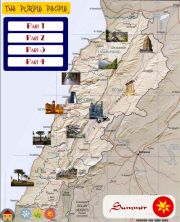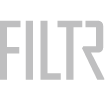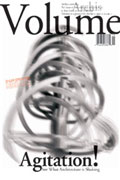|
|
Posted by finkployd in
Info
Sunday, August 13. 2006
-full report- We Are The Resistance -full report-
The Shabarek family have owned mills in Lebanon since 1961. Along with other food producers, they are the unsung heart of the Lebanese people�s resistance in the present war.
Not long after the outbreak of war, 15 of Mahmoud Shabarek�s Syrian workers crossed the premises of yard of Baraka Mills in Beirut to confront him in his office. They informed him they feared for their safety and were leaving in the morning.
�My uncle was away and I did not know what to do. But the mill could not operate without them. I had to do something,� recounts Mahmoud.
Climbing a loading dock, he gave an impromptu address to the men.
�Bread and water are the staples of life,� he began.
We make flour. From that flour, bakers bake bread. Our role is to feed people. Ours is a decent business and we do honest trade. Knowing this, will you leave now, as Lebanon faces her hour of greatest need?
Leave. It would be easier for me. I will sell my grain � it will be easy in these times of shortage � take my money and begin my life again elsewhere. But this would not be right. It is our duty to keep feeding the people of this country.
If we are a free people, if the people of the South are a free people, then these mills must run. Hizballah is not the resistance: We are the resistance!
When he had finished, 11 of the 15 were swayed. They filed around him and entered the office. One by one, they telephoned their families � on the spot � to tell them that they would stay in Lebanon.
For the next two weeks, the mill ran 24 hours a day. On double wages, with meals cooked and served on the premises, the men made the mills run � and fed Lebanon.
Now things have slowed a little. Bakers and traders are subsisting on the stocks they bought in the initial rush after the July 13, when hostilities began. Today the mill did not run; it was a day for much needed cleaning and rest.
All is not well, however. On the eve of the first month of the Israeli blockade, the Shabarek�s warn of an impending food and animal feed shortage.
On Thursday the Israeli Air Force pamphleted Bourj el Barajna where the Shahba Mills, operated by Mahmoud�s brother, Mael Shabarek, are located. The pamphlets warn anyone left in the area to leave. The fate of the mill is uncertain. It has become almost impossible to staff.
The bakers feeding what is left of the pummeled and impoverished population of the southern suburbs of Beirut � the most populous area of Lebanon � have been coming individually to the Shahba Mills to purchase their flour. Traders and middle men have stopped serving the area; the people have been fortunate in the mill�s unusual location in a residential area. Soon they will lose it, however.
At Baraka Mills, only 6 of the 11 workers who initially stayed are left now. Even if they remain, they may soon have nothing to mill.
�Lebanon consumes approximately 1500 Tons of wheat a day,� Mahmoud explains. �At that rate, our current country-wide reserves will last 30 to 35 days, maximum.�
Normally, a container ship requires approximately one month from the time the order is placed to its arrival in Beirut. Thus, explains Mahmoud:
�Even if the war were to end today, we would still have a problem. We needed to place orders last week. But no firms anywhere in the world are offering � at any price � to deliver grain to Lebanon.�
Mael has recently purchased American yellow corn on an optional delivery basis: If a ceasefire comes before the ship arrives, delivery will be to Lebanon. In the alternative, the ship will dock in Syria. Mael has not been able to hedge in this way on wheat.
If delivered to Syria, the product will have to be sold on that market. The Israeli Defense Force has struck heavy trucks traveling the northern route into Lebanon from Syria, making it costly or impossible to find drivers to travel the route. In any event, the volumes they are capable of transporting are too miniscule to feed a nation.
Certificates of safe passage allowing vessels to travel to Beirut have been issued � most notably to foreign governments evacuating their nationals. According to a member of the World Food Program logistics team staying at the Beirut Movenpick Resort, where the UN is now headquartered, anyone wishing to obtain a certificate must have their shipment classified as humanitarian in nature.
The Shabarek�s have contacted the Lebanese government, but have had no luck in obtaining the certificate. Perhaps one will be forthcoming. Or perhaps wheat � which the Lebanese are happy to pay for and import themselves � unlike bland foreign-donated high-energy biscuits, is not a humanitarian good. --Jamie Furniss
this piece written by Jamie Furniss for BloggingBeirut.com
Jamie Furniss is in Lebanon with BloggingBeirut.com to cover The War
-finkployd- all rights reserved
|
|
|
































